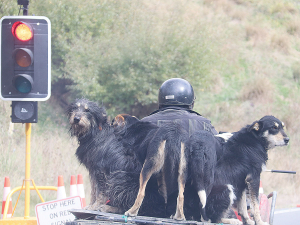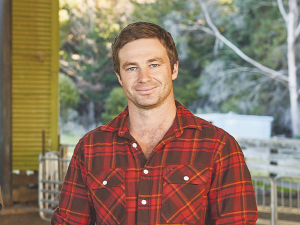The Kaikōura community and Takahanga Marae recently welcomed 14 tertiary health students from around NZ for a noho marae (overnight visit).
Noho marae are a big part of Hauora Taiwhenua's Rural Health Careers Programme, bridging the connection between tertiary students interested in rural health careers and the kaupapa (principle) of Māori health.
Nicole Molineux, a student at Massey University studying mental health and addictions, is of Māori descent herself, and attended a marae school. She told Rural News that along with learning more about Māori health she was fascinated to learn about rural health needs.
"I learnt a lot about Kaikōura in general, some of the needs of the rural community and how the rural community supports each other [and] about the marae where we were staying."
The three-day experience, hosted by Ngāti Kuri hapu (community) of the Ngai Tahu iwi (tribe), highlighted the unique opportunities of working in health as demonstrated within the Kaikōura community.
Throughout their time in Kaikōura, the students visited the local practice, hospital and school. Supporting this, local school pupils also attended the marae to actively engage with these tertiary students to encourage them to consider a health or well-being career in their area.
Molineux believes that the visit will have a significant impact on the knowledge and potential future of the other students in her group.
"There were a couple at the beginning who were already thinking about working within a rural community, but after having that experience of the noho marae and getting to interact with the community the way we did, I'd say a couple more were keen on considering it," she told Rural News.
"Kaikōura is definitely a place that I would consider living and working. I think the hard-to-reach communities are the ones that need to be targeted in terms of health initiatives because they are quite isolated."
With health outcomes of rural Māori being worse than any other demographic in NZ, Hauora Taiwhenua chief executive Dr Grant Davidson said having trainee health professionals immerse themselves in Tikanga Māori (societal lore), Rongoā Māori (traditional medicine) and Te Ao Māori (the Māori world) is a fundamental first step in cultural safety training.
Lisa Kahu, a representative from Kaikōura's Te Tai O Mahokura health service, said that Māori health is built on a holistic principle and following through in care - clinical or non-clinical - in a way that has cultural context. With not enough Māori clinicians in New Zealand to serve Māori health needs, she says it is critically important that all clinicians have some training in Māori health.
"It doesn't matter where you live in NZ, the reality is there's a responsibility to be culturally aware. In doing that, you have a far better chance of having a relationship with your patients and therefore being more effective as clinicians."
Kahu adds that, in August, Kaikōura will be hosting students from Otago University.



















